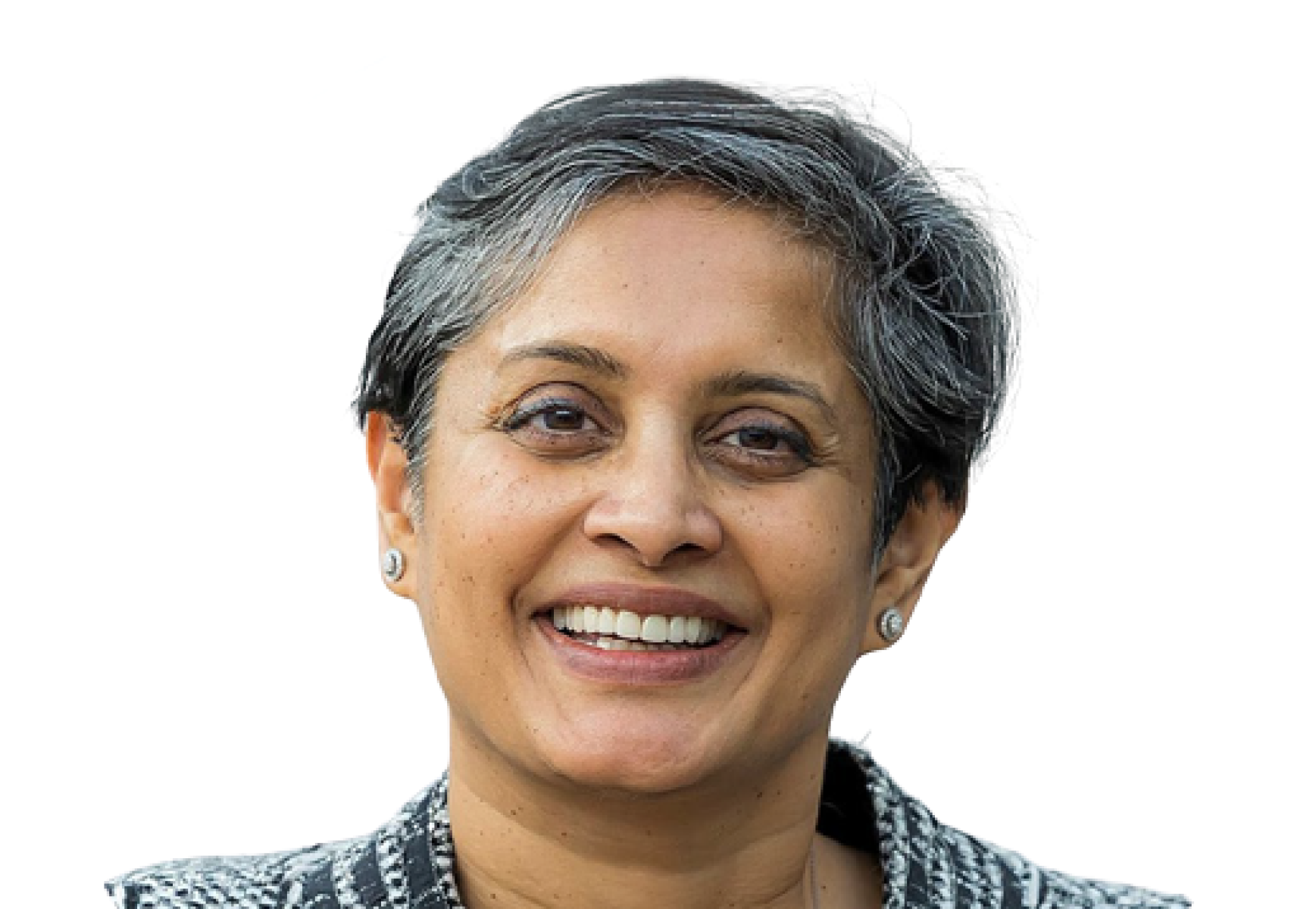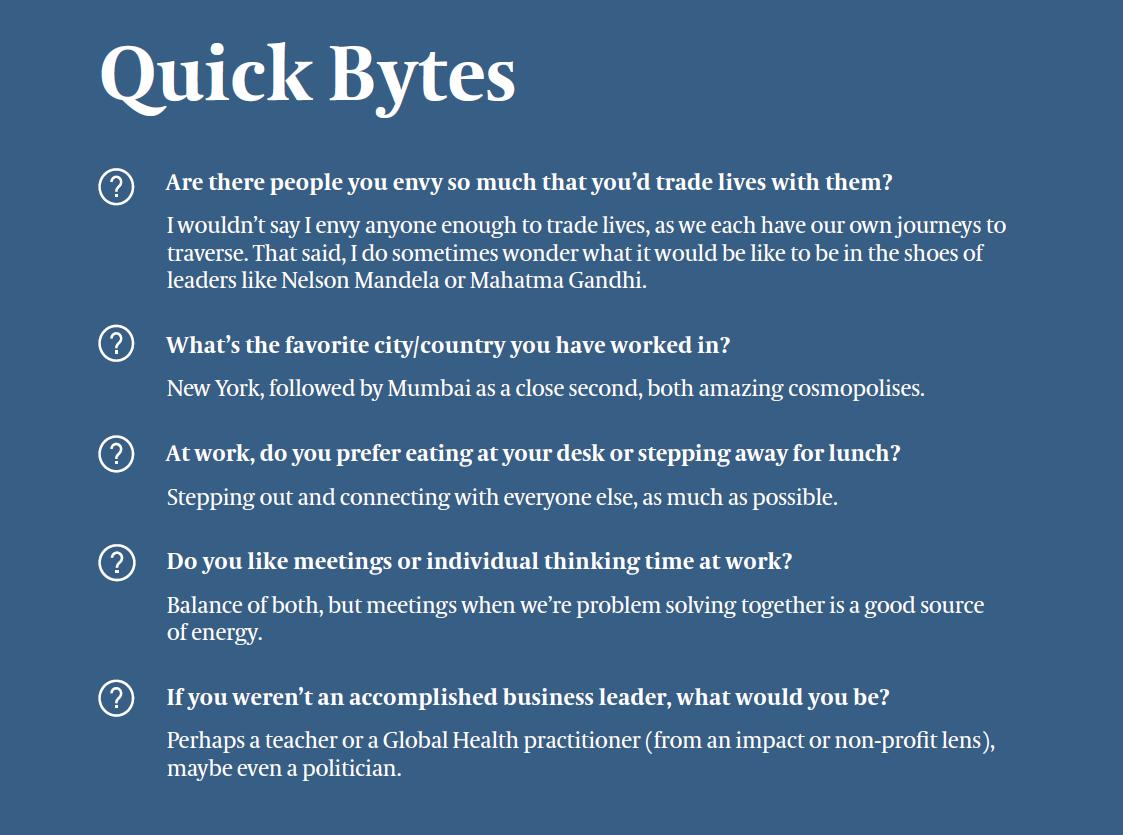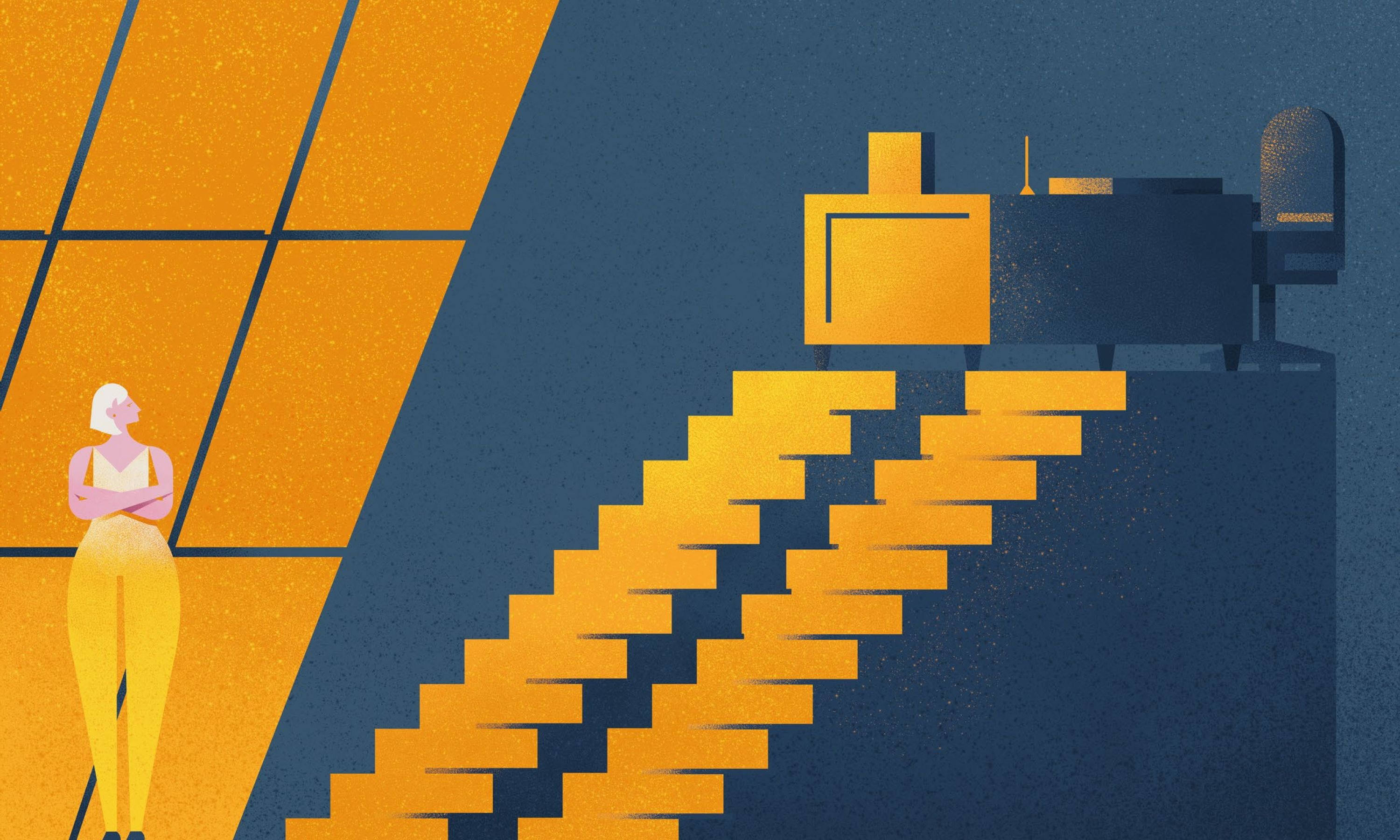Editor's Note: This interview is part of the Blazing a Trail: Women in Leadership series
From being a Captain in the Indian Army in the 90s to steering various markets for the global life sciences firm Boehringer Ingelheim, Vani Manja has many feathers in her cap. Vani’s grit, openness to change and ability to embrace discomfort often stand out as central themes in her career. She has broken barriers, recognized the importance of compassion and empathy, and is on a constant journey of growth as an individual and leader.
Celebrating women in leadership this International Women’s Day, we sat down for a chat with the versatile and accomplished female leader, who continues to pave the way for other women in the healthcare industry.
Vani Manja is currently Managing Director and Head of Human Pharma for UK & Ireland at Boehringer Ingelheim. She has been associated with the firm for over 11 years, working across geographies and roles. This was preceded by leadership roles at Becton Dickinson and McKinsey & Company. Vani also holds a Masters’ degree from the Wharton School and is an active member of the alumni network.
What early experiences have truly shaped who you are today?
Like many families with similar backgrounds, with my father in the Indian Air Force, we moved a lot. The most defining lesson from this lifestyle was perhaps agility - in adapting to new environments and new cultures every few years.
The second, longer term impact which I recognize and appreciate in hindsight, is the openness to change and the enjoyment of the discomfort that comes with new environments.
Fast forwarding to the present, my husband, son and I have moved every few years ourselves. With that comes the curiosity to understand the new environments and people each time and the opportunity for new learning - of languages, histories, cultures.
Let’s go back to when you were a teenager in high school. Did you know what you wanted to be back then?
I certainly didn’t have a clear vision of what I wanted to do specifically ‘when I grew up’. Growing up in a generation where many Indian parents saw medicine and engineering as ideal professions for their offspring, I did consider medicine. When I didn’t clear the medicine entrance exams in the first attempt, I had the opportunity to reflect and realise that this was not something I really wanted to do enough to try again. Instead, I joined a bachelors program in chemistry at the Delhi University, with the intent to pursue business education thereafter. As I was graduating from college, however, the Indian Armed Forces started to induct women as commissioned officers. This changed my plans entirely!
With your father also in the Forces, was the Army opening its door to women the real driver for you?
Absolutely! Growing up, it struck me as ‘unfair’ that women didn’t have the opportunity to serve in the armed forces (outside of medicine). When the Indian Army started taking women, I knew that it was what I wanted to do. I saw a stint in the Army as an unparalleled learning opportunity! The hook was the challenge in the opportunity: to work and lead in an environment where women had not heretofore been present.
Being among the first women to ever enter the Indian Army must not have been easy. What lessons and changes from that time have stayed with you?
Dealing with the fact that superiors, peers and sometimes also the soldiers were trying to figure out how to accept women as officers, peers or leaders was complex and often challenging. It was a journey of proving myself each day, in the face of physical, emotional, and psychological demands. But this put me on a track of striving for clear goals and aspirations, working towards them and achieving them. I learned to be comfortable being uncomfortable.
You later went on to a successful journey in business school (Wharton) and consulting (McKinsey), and then a wonderful career in healthcare/life sciences (Becton Dickinson and Boehringer Ingelheim). What was the most challenging phase in all of this? What have you learned?
Wharton as an experience was fantastic! Even more so because I also joined the Lauder Institute at UPenn for a dual degree, an MA in International studies, with French as the language of focus. The toughest period in business school was perhaps the first two to three months: my first time living outside India; spending a couple of months in France, speaking only in French; new country, new and different culture, and a fourth language. Fair to say, in the spirit of ‘in challenges lie opportunities,’ that I learned much and grew a lot as a person.
I joined McKinsey following my MBA, where the first year was full of learning and unlearning. Coming from the Indian Army, an environment where you raise your hand or wait to be asked, especially when you disagree, to a culture which fosters and reinforces the ‘obligation to dissent’, the transition was not easy.
Now as a leader, I do remind myself of these times of big transitions as I strive to create an environment where diverse team members can thrive (for example, a talent joining from an entirely different culture or speaking English as a second or third language).
Now as a leader, I do remind myself of these times of big transitions as I strive to create an environment where diverse team members can thrive (for example, a talent joining from an entirely different culture or speaking English as a second or third language).

Did you ask for support as you navigated this big shift in context?
Indeed, I did. I appreciated the support I received from the firm at large, be it formal and informal mentors or external coaching. I remember, for example, training with an ‘Alexander Technique’ coach to help better manage the fight or flight response during high stress situations. I eventually found my way and thrived during seven great years at McKinsey.
Does constantly striving for excellence exhaust you? How do you cope with disappointment?
I am energized by knowing that I have done the best I could in whatever I undertake. Yes, striving for excellence can sometimes be exhausting, but the knowledge that I have put in my best, and seeing the immense impact this can bring to the organization and the teams I lead - or am part of - gives me the energy to keep going.
That said, I have learned over time to no longer seek constant perfection, and not be too tough on myself as well as others. Ultimately, we are all works in progress as human beings and organizations, and failures along the way can help us get better. This is something I try to teach my son: to strive to do his best but not chase perfection, and importantly to be kinder to himself.
Has becoming a mother changed your approach to work and leadership?
Motherhood has clearly taught me patience in terms of what I expect from myself and others. I have become much better at prioritization and balance. The importance of leading by example is something that being a parent teaches you fast, as you realise children follow your actions more than your words.
Motherhood has also been a perfect learning ground for my belief in and practice of humility and servant leadership. I subscribe to the belief that we are the sum of our hard work, our courage and risk-taking, and the cards we are dealt, “Kuch mehnat, kuch himmat, kuch kismet;” having the humility to acknowledge this helps truly listen to and respect the diversity of voices and viewpoints across hierarchies in an organization, and truly harness the power of the collective.
What has been the role of mentorship throughout your career?
I have been fortunate to have some great mentors as well as sponsors along my professional journey. Some of the most inspiring mentors have given me direct and honest feedback – including ‘tough love’ when needed - and engaged in dialog on how I can improve. The knowledge that some of them are also sponsors who will advocate for you in discussions that you aren’t a part of has also also been reassuring, because it helps me pursue the principle of “Karmanye vadhikaraste, Ma phaleshu kadachana” (Perform your duty, without any expectations of the fruits.).
It is important to recognize that mentorship is a two-way street, so I do seek to support my mentors and sponsors in any way I can, and also ensure that I pay it forward, making a conscious choice to be available to those on my cross-functional teams as they seek to grow and develop. Ultimately, intellect is often a given, competencies are built over time, but relationships need continuous nurturing, be it in our personal or professional lives.
As you look ahead, what do you reckon might be some challenges over the next 4-5 years, that leaders and especially women leaders need to be aware of and attune themselves to?
It would be fair to say that the pace of change today is like never before. As individuals and as leaders, we need to recognize that developing agility and a growth mindset is the only way to survive and thrive.
Also, we now have four or even five generations of people in the workforce, often in a truly globalized environment. A topic of keen interest for me as a leader is how we as individuals, leaders and organizations appreciate this diversity in our workforce as this reflects the diversity of our patients and our customers. We need to make sure our ways of working enable our diverse workforce across gender, generations and cultural backgrounds to be their true and whole selves, so they can perform their best. This requires leaders and organizations to be truly more inclusive.
Lastly, as we see increasing polarization across the globe, how we treat each other is of utmost priority. Agnostic of the differences in our beliefs and philosophies, recognising our shared agenda and pursuing our shared purpose can help bring out our best.
Lastly Vani, how would you like to be remembered by the world?
As someone who cared, who set high standards, who took people along with her and brought the best out of them, and someone who made a meaningful difference whatever she set her heart and purpose on.






